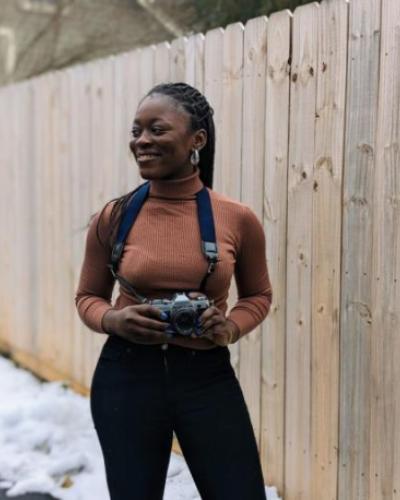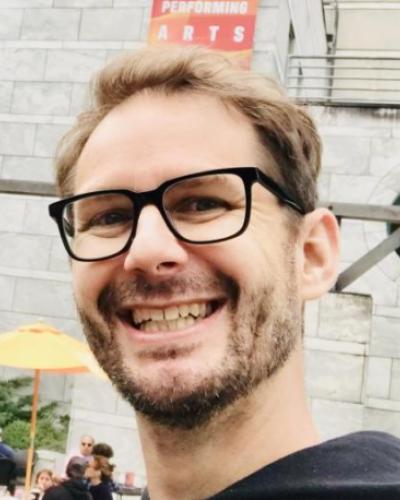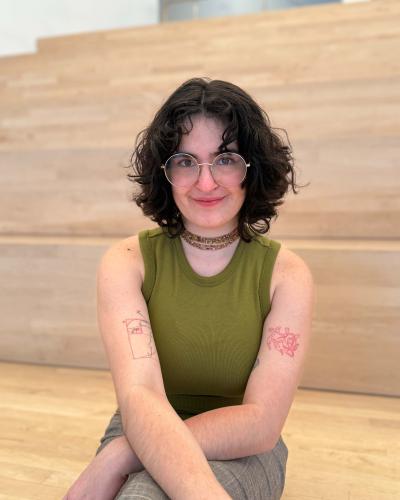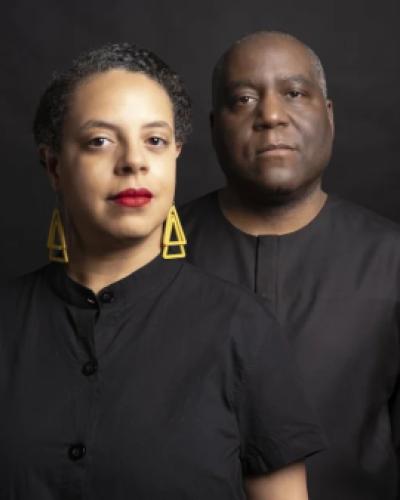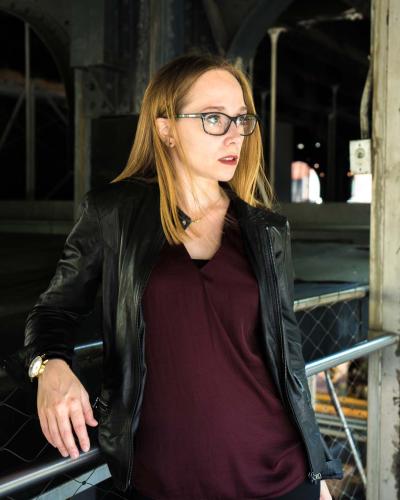PMA Alum Jennifer Williams ’15 has written a new book called Archaeology of the Political Unconscious: Theater and Opera in East Berlin: 1967-1977. The book, published by Routledge in 2024, is part of the Advances in Theatre & Performance Studies series. It is based on the dissertation Williams wrote at Cornell, which included research in Berlin’s state archives supported by a Fulbright grant.
Read our interview with Williams:
What was your approach in crafting this book?
This book began as my Ph.D. dissertation at Cornell. What excited me about the topic was the question of how theater and opera can intervene in the cultural dynamics of political legitimation. Theater and opera of course can be political, but political legitimation can also be aesthetic. I examined how artists in the GDR [German Democratic Republic, or East Germany] excavated intentionally selected artifacts from Weimar-era productions, resituating them in a new East German cultural context with the aim of conveying a specific political message. What I discovered is that the artifacts resisted singular interpretations, instead inciting dialectical discourses that reflected the untidy political debates of their time. My hope was that my argument offered a case study for how political legitimation’s aesthetic dialectics, and performance’s catalytic role therein, might illuminate similar questions in other historical moments beyond the GDR.
I returned to my dissertation during the pandemic lockdown. New and urgent questions about political legitimation prompted my decision to resume this research: namely, right-wing extremist disinformation clouding public perception of the legitimation of the 2020 presidential election results, and the violent attack on the U.S. Capitol it fueled. Unexpected theatrical elements in this horrific event shocked and perplexed me. I wrestled with the juxtaposition between the series of rituals surrounding counting the certified electoral votes and the outlandish costumes worn by the violent insurrectionists…The new epilogue of my book investigates these two competing performative systems of meaning at work.
My dissertation draws upon influential feminist theorists to examine gender politics, phenomenology and aesthetics in the first East Berlin production of the anti-opera. Although the selected feminist theorists were contemporaneous with the production, they were all Western. Several common explanations exist for the apparent absence of East German feminist criticism, such as censorship and even a diminished need for such critique due to progressive public policies for women’s rights – policies many Western countries adopted after the fall of the wall. So, I set out to trouble these assumptions. I turned instead to East German Frauenliteratur [women’s literature], searching for epistemological fragments embedded in novels and short stories. What I found were theoretical frameworks that threw their Western counterparts in relief, each voicing perspectives the other lacked. For example, many Western feminist theories of the time celebrated corporeal imagery and reproductive metaphors, challenging stigmas surrounding them. Some feminist critics find them reductive and transphobic. East German Frauenliteratur employed instead psychological symbolic language. Ineffable and intriguing, these East German epistemologies were arguably more inclusive. The chapter that appears in my book engages with both, animating an East-West feminist discourse across the wall’s divide.
How did your work at PMA contribute to your thinking on this topic?
One of the most extraordinary opportunities PhD students have at an institution like Cornell is the possibility of performing international archival research. I knew this was a skill that I wanted to build during my doctoral studies, so I selected the topic of GDR theater and opera because it offered the experience of traveling abroad and researching in the state archives. Cornell supports graduate students for this work through a special research and travel fellowship, which was an invaluable start to my archival research. A Fulbright grant thereafter allowed me to stay in Germany for a longer period and spend more time with the materials.
In addition to critical funding support, many of PMA’s faculty members possess extensive first-hand experience with international archival research themselves. Their invaluable insights allowed me to plan my research trips effectively and navigate the labyrinthine state archives….
Lesser known but professionally active male GDR artists generally have well-kept materials easily located at the same institutions. Materials for women GDR artists can be much harder to find…. The experience of this archival research was a formative challenge, and I cannot imagine my doctoral education without it.
Another joyful gift was that, thanks to my education at Cornell, I was able to work in the archives entirely in German. I took my first German class as a graduate student at Cornell and stuck with it through the end of the sequence. David Bathrick challenged me to create my own original translations of Bertolt Brecht and Heiner Müller’s plays as part of his GDR Culture seminar. I returned to this skill when I rewrote my dissertation to prepare it for publication as a book. Although sources authored by men have been widely translated since the fall of the wall, many of the examples of GDR Frauenliteratur [women’s literature] I write about in my chapter on Mahagonny have never been translated into English. My book includes my original translations, published in English for the first time. Learning a new language as a graduate student is a great challenge, but one that is well worth the effort.
What would you like readers to know about your work?
Archives, politics, and the politics of archives factor into diverse areas of my work. Recently, I created two devised operas that drew from my original archival research. Dis/Inform (2024) investigated the correlation between right-wing extremist disinformation and depression, and how that correlation impacts voting rights, especially for minority voters. GROUNDS (2021) retold the history of Brooklyn through an intersectional feminist lens. An environmental opera installation, GROUNDS took place in the parks and streets of South Brooklyn and was shaped by the topography of the landscape. Supported by grants from New York State council on the Arts, Brooklyn Arts Council, Opera America, and New Music USA, both works were built from source materials from archives and, in the case of Dis/Inform, original interviews I recorded. I worked intensively with ensembles of singers and instrumentalists to devise the work collaboratively from the archival materials, challenging the hierarchies implicit in “classical music” in pursuit of more democratic modalities of composition.
I recently broke ground in a new area of my creative practice, which fuses AI, creative coding and live performance…. My work asks how technology can amplify creativity rather than replace it. I also explore how hand-coded AI systems can serve artists and undermine corporate data mining. It is certainly inspired by my research and teaching at Cornell beyond my dissertation: in posthumanism, the intersection of technology and the arts, and one of the courses I taught as part of the John S. Knight Institute for Writing in the Disciplines: “Virtual Bodies, Living Machines: Technology and Live Performance.”
When I returned to Harvard’s Mellon School of Theater and Performance Research for its final year in 2022, the Mellon School invited me to teach an interactive workshop on my creative methods blending social justice, site-specific performance installations, and devising. It was such a joy to lead participants in creating their own musical micro-installations all over the Theater, Dance & Media center and guiding everyone throughout the building to discover them.
I am happy to share that I have started work on my second book, which investigates toxic theatricalities and utopian artistic practices that counteract them. In it, I discuss my creative work and the critical contexts that inform it.
Read more about Williams’ work.

